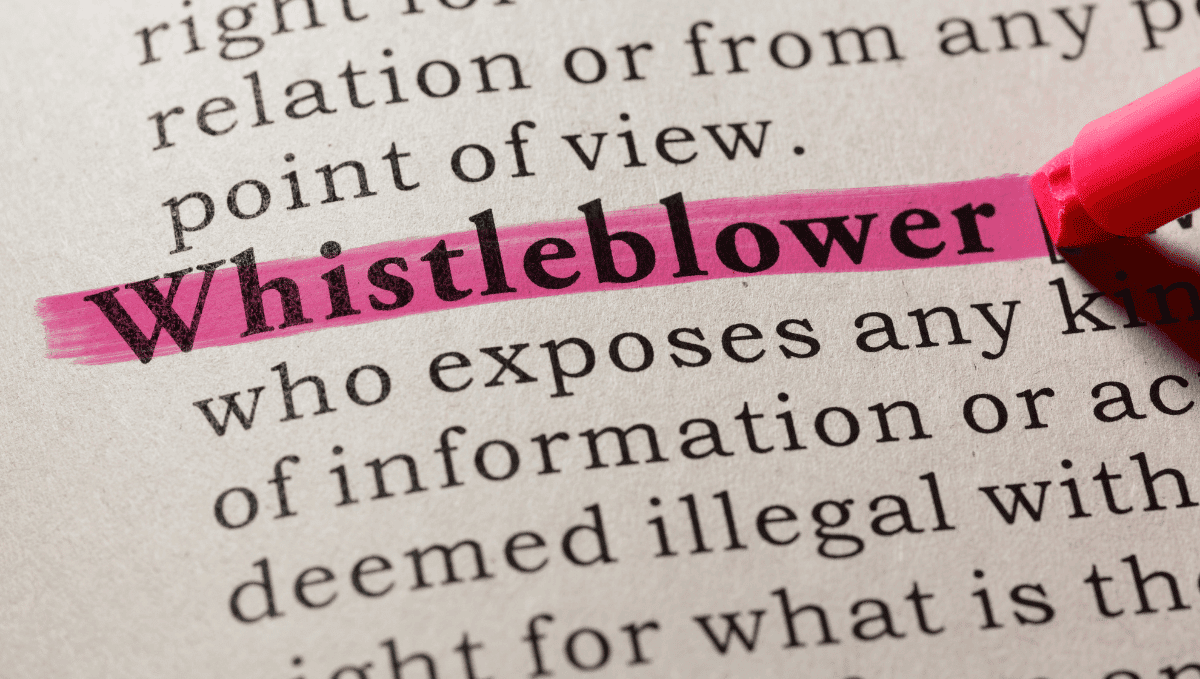
Whistleblowing
Find out about legal protections for whistleblowers here.
Your rights
Workers can ‘blow the whistle’ on their employers by reporting certain types of wrongdoing. The wrongdoing you witness - usually at work - and disclose must be ‘'in the public interest'. This means it must affect others, for example the general public.
Personal grievances (for example bullying, harassment or discrimination) are not usually covered by whistleblowing law.
Disclosing that you have witnessed wrongdoing us formally known as ‘making a disclosure in the public interest’. If a worker blows the whistle, they have the right not to be dismissed or otherwise penalised as a result – they are protected by the law.
It's important to understand that there isn’t a general whistleblowing protection in legislation: there are specific definitions of what counts and what doesn’t, and what steps a potential whistleblower would need to take to qualify for the protections of the law.
Whistleblower protections in law
The relevant legislation related to whistleblowing appears in the Public Interest Disclosure Act 1998 (PIDA), which inserted various new sections into the Employment Rights Act 1996.
There were several scandals and disasters in the 1980s and 1990s – such as a collision between several trains, and the collapse of a bank due to mass fraud - that might have been prevented had workers felt safe enough to come forwards and blow the whistle. The need to ensure workers could come forward safely to disclose wrongdoing such as illegal, dangerous or corrupt practices resulted in the Public Interest Disclosure Act.
Who is protected by the legislation?
Workers are protected – not only employees but also contract workers, trainees, consultants, and agency workers amongst others. Some people are specifically excluded, such as volunteers.
What counts as a ‘protected disclosure’?
Raising that you believe any of the following wrongdoing has occurred will count as whistleblowing:
- A criminal offence, for example fraud
- Someone’s health and safety is in danger
- Risk or actual damage to the environment
- A miscarriage of justice (when a grossly unfair outcome results from a civil or a criminal judicial proceeding)
- The company is breaking the law, for example does not have the right insurance
- You believe someone is covering up wrongdoing
The process for whistleblowing
The identity of the person to whom the worker makes a disclosure and the circumstances in which they make the disclosure will determine whether that worker is protected under the legislation. Usually – though not always – the disclosure is made to the employer and the law is drafted to encourage workers to make the disclosure internally.
Your employer may have a whistleblowing policy that tells you what to expect if you report your concern to them. However, you can still report your concern to them even if they do not have a policy.
There are other options if you don’t want to report your concern to your employer. For example you can speak to your trade union rep if you are a member of a union, get legal advice from a lawyer, or tell a specific person or body. There is a list of who to approach here.
If you tell a prescribed person or body, it must be one that deals with the issue you’re raising, for example a disclosure about wrongdoing in a care home can be made to the Care Quality Commission.
Whistleblowing and TSSA members
If you are a TSSA member and think you might need to ‘blow the whistle’, please approach your union rep, a TSSA organiser, or our Helpdesk to discuss this.
TSSA reps can approach their employer and speak to them about how they are complying with the relevant part of the Employment Rights Act 1996. For example, have they put together an organisational policy for potential whistleblowing? Are new employees told about where to find the policy and who to approach if they believe they have observed wrongdoing?
Please note
The information in this section provides guidance and some basic details of employment rights. They do not attempt to be comprehensive, and should not be taken as an authoritative statement of the law. For latest advice and guidance, please contact our Helpdesk.
Member advice from our Helpdesk
If you are a TSSA member and are looking for advice or assistance in connection with your employment or membership, you can contact our Members’ Helpdesk.
We can advise on a range of workplace issues including; discipline and grievance hearing, maternity rights and redundancy.
Helpdesk opening hours: 09:00 - 17:00 Monday - Thursday | 09:00 - 16:00 Friday
Please note: we cannot undertake to provide advice to non-members, to members of other unions, or to members on behalf of their partners/friends. If you are not yet a member, please join TSSA online.
